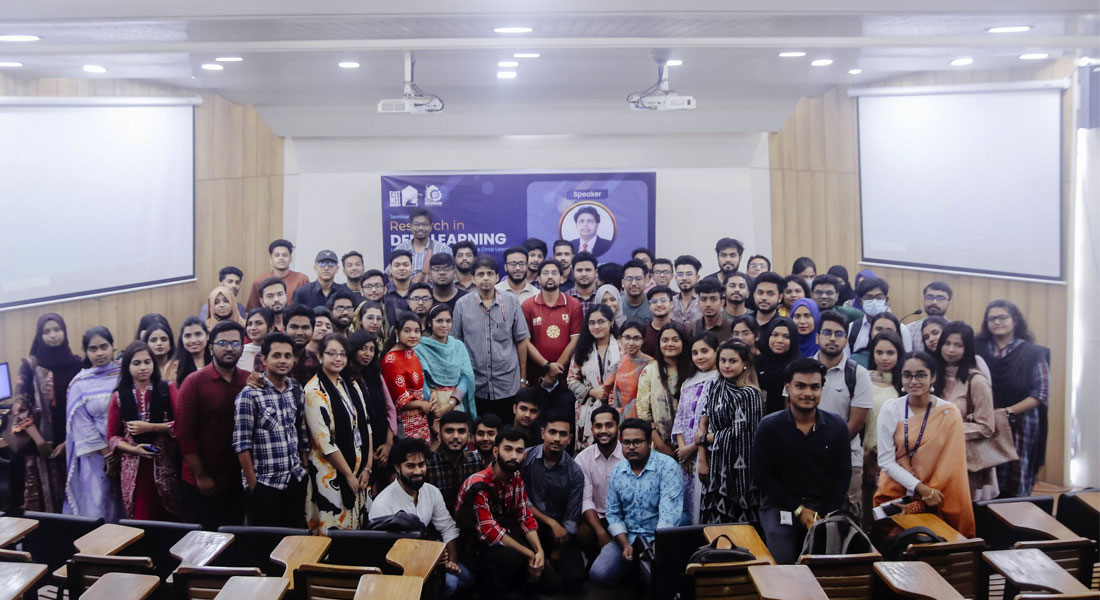
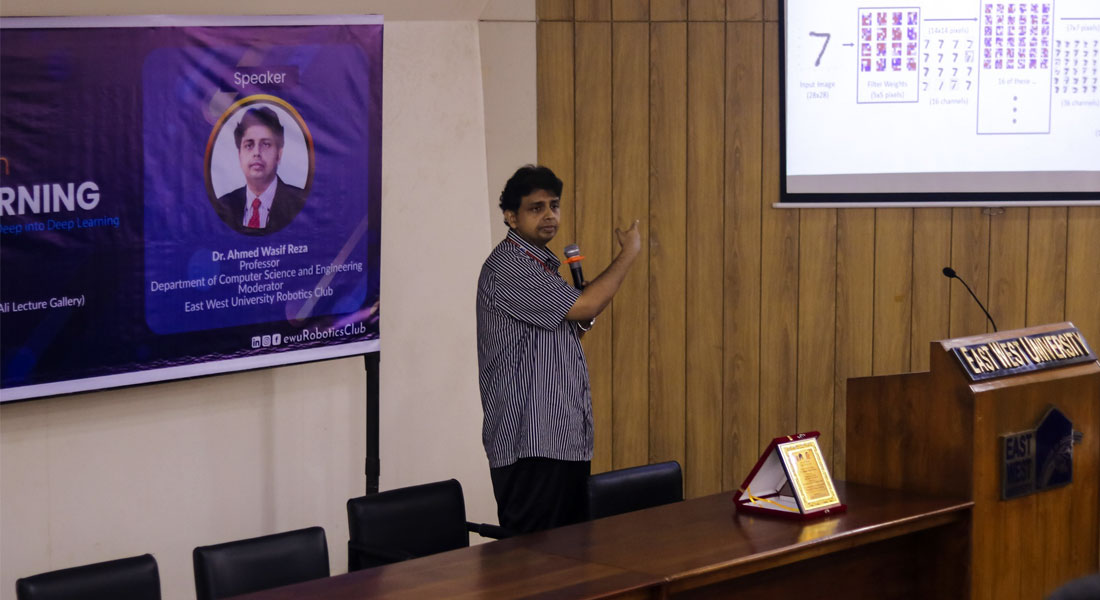
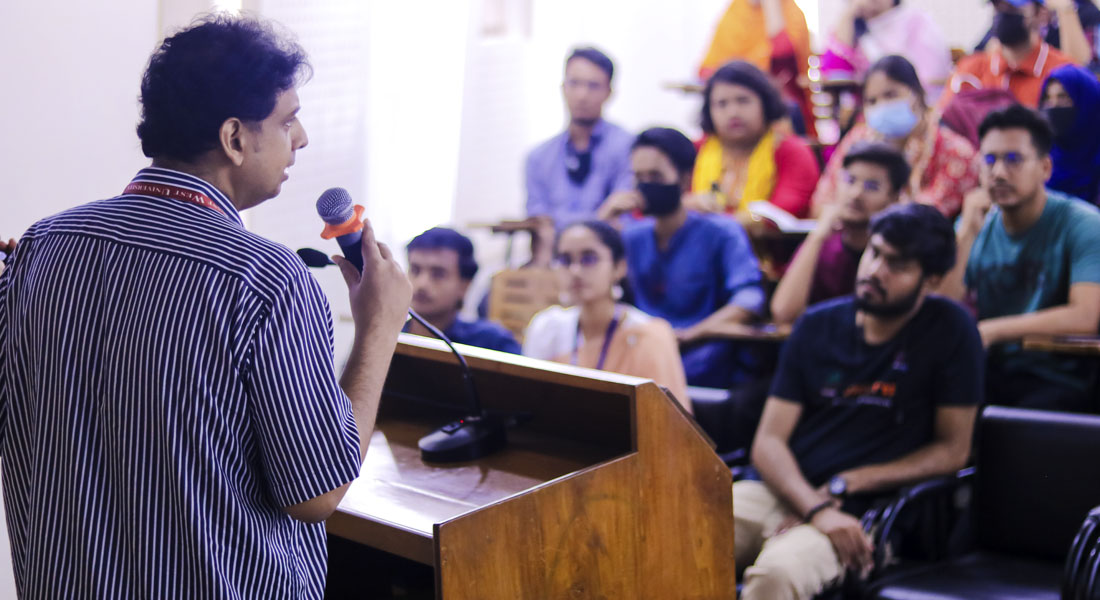
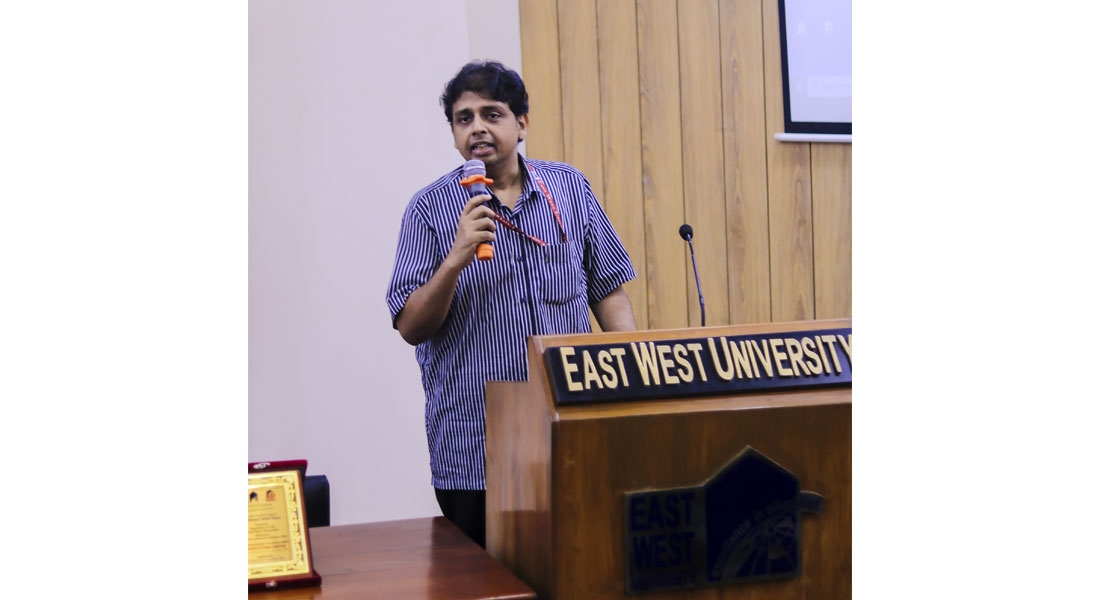
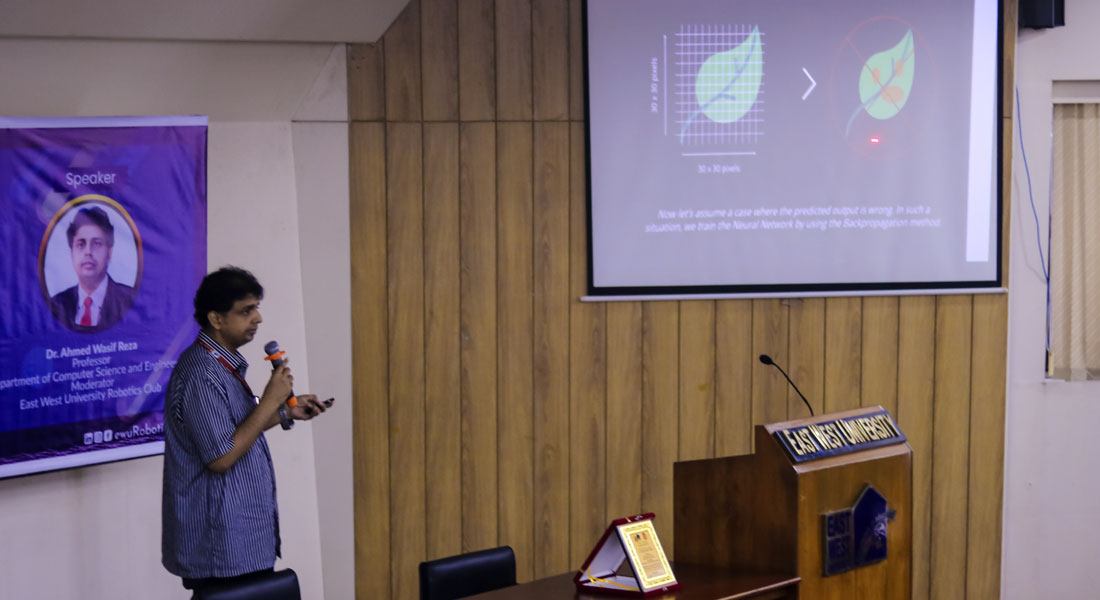
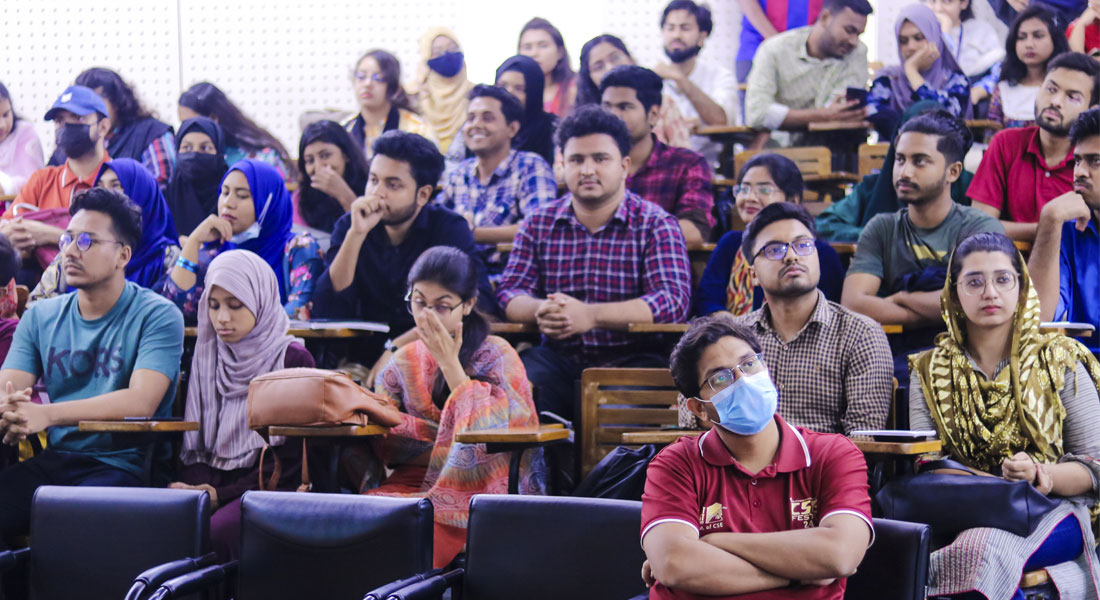
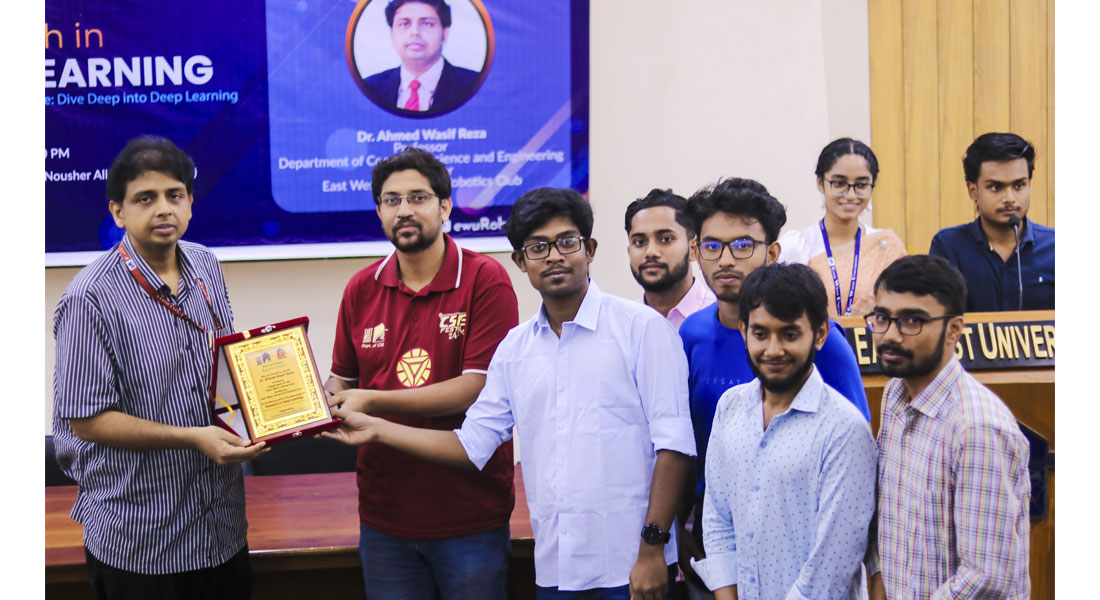
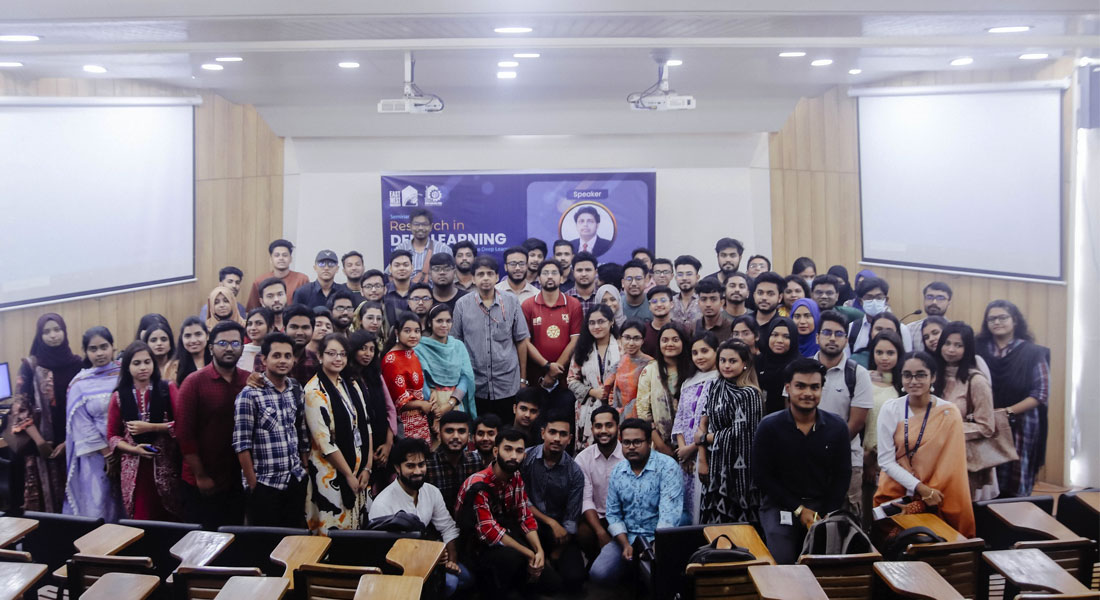
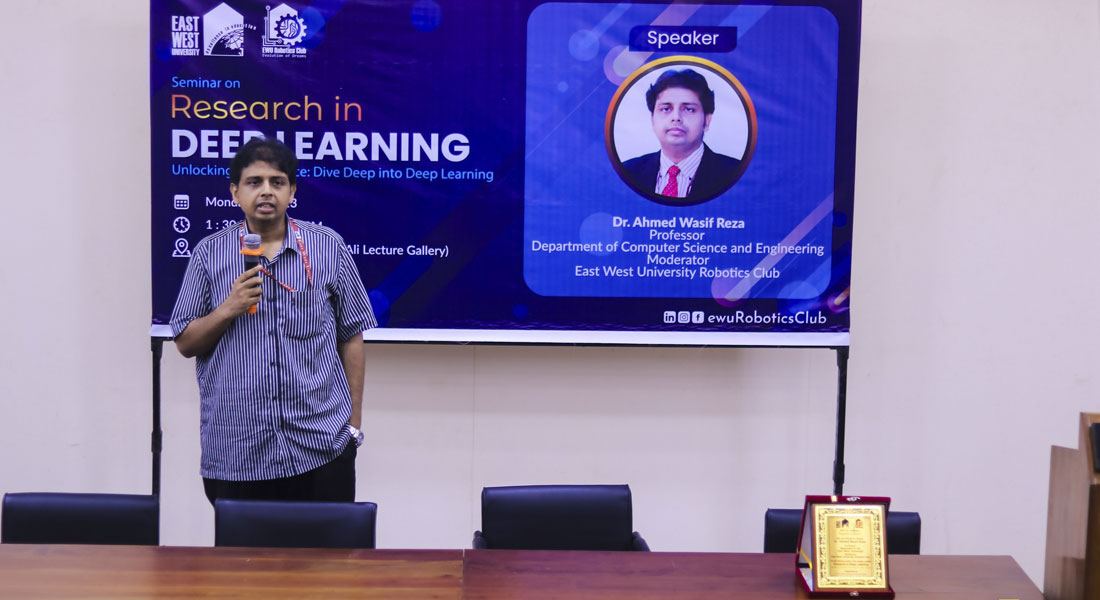
15
May
Research in Deep Learning and Generative Artificial Intelligence
East West University Robotics Club (EWURC) hosted an enlightening seminar on the latest advancements in Deep Learning Research on 13 May 2024. The seminar was graced by the presence of esteemed club moderator, Dr. Ahmed Wasif Reza (Professor of CSE Department), who also served as a keynote speaker. The event was a deep dive into the intricate world of Deep Learning and Generative Artificial Intelligence (AI), offering insights into various neural network architectures.
The seminar was notably enhanced by the keynote address from Professor Dr. Ahmed Wasif Reza, club moderator and a distinguished figure in the realm of AI, Machine Learning, and Deep Learning. His expertise in neural network architectures and their applications set a high bar for the discourse of the seminar. As the event drew to a close, a ceremonial crest-giving segment was conducted, with Mr. Md Al-Imran, also a moderator, bestowing the crest upon the guest speaker.
The seminar journeyed into the exploration of deep learning, and demystified some core concepts, particularly Convolutional Neural Networks (CNNs), Long Short Term Memory Networks (LSTMs), Recurrent Neural Networks (RNNs), Generative Adversarial Networks (GANs), Multilayer Perceptrons (MLPs), Deep Belief Networks (DBNs), Autoencoders, etc. and how they are pivotal in advancing AI, transforming data into insights, and mimicking complex cognitive tasks. This exploration underscored the transformative impact of deep learning across various industries and scientific research. The seminar also illuminated the vast landscape of research opportunities within deep learning, urging attendees to delve into this vibrant area of study.
The seminar also featured a dynamic code demonstration session where the keynote speaker Professor Dr. Ahmed Wasif Reza showcased the implementation of deep learning models. Attendees (around 120 participants) observed firsthand the coding of ANNs, CNNs, RNNs, LSTM, GANs, and Autoencoders using frameworks like TensorFlow and PyTorch, which illuminated the practical aspects of constructing and training neural networks for real-world applications.
In conclusion, the Seminar on Research in Deep Learning organized by EWURC was a comprehensive exploration of the field, characterized by expert insights and practical demonstrations. The event provided a thorough understanding of deep learning and its applications, equipping participants with the knowledge to advance in their research pursuits. The seminar’s structured approach and our esteemed speaker’s expertise were particularly instrumental in demystifying complex concepts for the attendees.